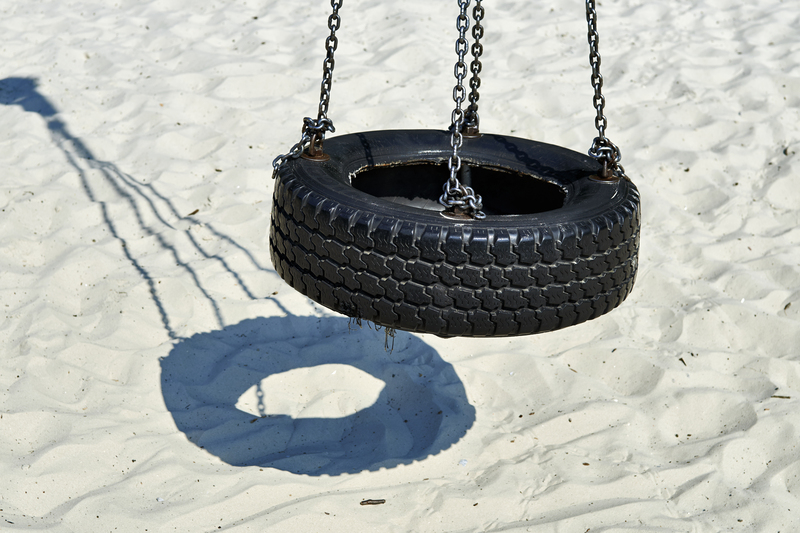Spot the Top Places to Responsibly Discard Used Chargers
Every year, millions of people upgrade their smartphones, tablets, and laptops, resulting in a massive pile-up of old and unused chargers. These electronic waste items, or e-waste, can be harmful to the environment if not disposed of properly. Knowing how and where to responsibly discard used chargers is not just about decluttering your space--it's about making a genuine contribution to sustainability and environmental protection. In this comprehensive guide, we'll explore the top places to recycle or dispose of old chargers responsibly, including helpful tips, resources, and best practices for ethically managing your e-waste.

Why Responsible Charger Disposal Matters
Chargers, like many forms of electronic waste, contain materials such as plastics, heavy metals, and other components that can leach toxins into the environment if not handled correctly. Tossing an old charger into your regular trash means it will likely end up in a landfill where it won't decompose and may contribute to soil and water contamination. The good news? Sustainable practices for e-waste management are more accessible than ever.
- Environmental Protection: Properly discarding chargers keeps hazardous metals out of the soil and water systems.
- Resource Recovery: Old chargers often contain precious metals like copper and gold that can be recovered and reused.
- Legal Compliance: Many areas have regulations regarding e-waste disposal, making responsible recycling the safe and lawful option.
Where to Responsibly Discard Used Chargers
Ready to clear out your drawer of tangled chargers? Here are the most reliable and eco-friendly places to recycle or discard your used chargers.
1. Local Electronics Retailers
Many large electronics stores now offer dedicated e-waste recycling bins for small devices and accessories, including chargers. Retailer e-waste take-back programs are convenient and effective, thanks to their locations and consistent recycling processes.
- Best Buy: Accepts a wide variety of electronics including cell phone and laptop chargers in-store at most locations.
- Staples: Has a robust electronics recycling program and will take back old power cords and adapters.
- Target: Many Target stores have recycling kiosks at the front entrance, designed for small electronics and accessories.
2. Municipal Waste Collection and Recycling Centers
Almost every city or municipality operates a household hazardous waste facility or a recycling drop-off center where residents can bring unwanted electronics, including power cords and chargers. These centers are equipped to collect, sort, and safely recycle electronic gadgets.
- Check your city website for designated e-waste drop-off days or year-round e-cycling programs.
- Some localities host electronics recycling events throughout the year where residents can bring all sorts of small gadgets, including used chargers for proper disposal.
- Many centers allow you to drop off chargers free of charge or for a nominal fee to cover safe handling.
3. Manufacturer Take-Back and Mail-In Programs
Leading electronics manufacturers offer mail-in recycling programs or take-back initiatives where you can send in old chargers and accessories. These programs responsibly dismantle and recycle every component.
- Apple: Accepts chargers, power adapters, and cables through its Apple Recycling Program--either in-store or by mail.
- Samsung: Provides drop-off and mail-in recycling for all Samsung-branded electronics and accessories.
- Dell Reconnect (with Goodwill): Accepts a wide range of electronics and accessories, diverting e-waste from landfills.
4. Non-Profit Organizations and Charities
Some non-profits accept used chargers if they're still in working order. These organizations either reuse them, donate them to people in need, or recycle them responsibly.
- Goodwill: Many Goodwill donation centers accept small electronics, including chargers, for resale or recycling.
- The Salvation Army: Some local branches will accept chargers alongside other donated electronics for their reuse programs.
- Cell Phones for Soldiers: This charity often welcomes chargers to be paired with donated phones before being given to veterans and active military personnel.
5. Specialized E-Waste Collection Services
In cities and larger towns, there are companies solely dedicated to collecting and recycling electronic waste. These firms sometimes offer curbside pickup or will drop off collection bins at commercial buildings and apartment complexes.
- Callahead (e-Stewards or R2 Certified Recyclers): Look for certified e-waste recyclers who follow strict guidelines for the safe and ethical handling of electronics.
- Local E-Waste Recovery Services: Many areas now have door-to-door e-waste pickup; check local directories for options.
- Office Building E-Waste Days: Some workplaces organize periodic e-waste collection events for their employees and tenants.
Additional Tips for Responsibly Disposing of Old Chargers
Prepare Your Chargers Before Disposal
- Remove all batteries (if applicable) and dispose of them according to local battery recycling guidelines.
- Untangle and group cables for easier sorting and processing.
- Test chargers to see if they still function--working accessories may be donated rather than recycled.
Never Throw Chargers in Regular Trash
Electronic waste doesn't belong in your regular garbage or curbside recycling bin. Ordinary trash processing cannot handle the hazardous materials inside the charger casing, risking pollution and lost recyclable materials.
Look for Certified Recyclers
- Use organizations and centers with e-Stewards or R2 certification to guarantee proper environmental stewardship.
- Certified recyclers are audited for environmental and worker safety standards.
Consider Repurposing and Reusing
- Save an extra charger as a backup for travel or emergencies.
- Offer functioning chargers on local online marketplaces or Freecycle networks.
- Some schools, shelters, or community groups can use old chargers for electronic learning or job programs.
Online Platforms for Charger Recycling
The internet has made responsible charger disposal even more accessible. There are several platforms that connect users with recycling solutions, donation opportunities, and mail-in programs. Here's how you can get started:
- Earth911: Use Earth911's searchable database to find drop-off sites for e-waste recycling near you.
- Call2Recycle: Although primarily focused on batteries, Call2Recycle helps locate partner sites that accept chargers and other electronics.
- GreenerGadgets.org: Find certified e-waste recyclers or drop-off locations using this comprehensive tool.
- eBay for Charity and Local Freecycle Groups: Donate or give away working chargers through these online communities.
How to Identify the Best Place for Responsible Charger Disposal Near You
- Assess Your Charger's Condition: If it's still functional, aim for donation or reuse. Otherwise, seek out a recycling option.
- Search Local and Retail Options: Start by contacting nearby electronics stores, city recycling centers, and non-profits.
- Check for Manufacturer Programs: Major tech companies usually have the most thorough recycling networks for branded accessories.
- Use Online Recycling Locators: Platforms like Earth911 and Call2Recycle streamline the search process with zip code look-ups.
- Verify Certification: Always ensure your chosen recycling partner follows certified practices for electronics recycling.
The Environmental Impact of E-Waste and Why Every Charger Counts
You may think that a single charger is insignificant, but when combined with the billions of unused chargers worldwide, the environmental stakes become clear. Chargers contain:
- Non-renewable plastics
- Copper wire
- Steel and aluminum connectors
- Solder containing lead (in older chargers)

FAQs: Responsibly Discarding Used Chargers
Can I put chargers in my household recycling bin?
No. Chargers and cords are not accepted in regular curbside recycling--take them to specialized e-waste facilities instead, as they can tangle machinery and contain hazardous substances.
What if my charger still works?
Donate it to a local charity, non-profit, or school, or list it on community sharing websites. Many people need affordable accessories and can extend its useful life.
Do stores really accept used adapters and chargers?
Yes! Big box electronics retailers often keep in-store e-waste recycling bins at the entrance. Just check online or call ahead to confirm what they accept.
What risks are there in improper disposal?
Improperly discarded chargers can leach lead, cadmium, and other heavy metals into the ground and water, harming wildlife and possibly entering the human food chain.
Conclusion: Doing Your Part With Responsible Charger Disposal
Taking the time to locate responsible places to discard used chargers helps protect our environment, supports resource conservation, and ensures safe and ethical handling of electronic waste. Whether you drop off your old chargers at a retail location, utilize a manufacturer's program, or support local e-waste initiatives, your actions make a critical difference in the fight against e-waste pollution.
Take a proactive step today--gather your used chargers and choose from the many convenient and responsible disposal options available in your community or online. By doing so, you're not only keeping your spaces organized but also contributing to a cleaner, greener planet for generations to come.